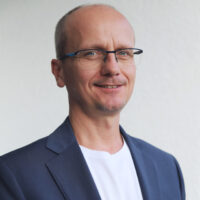Northrop Grumman Corporation I US
Keynotes
Development of next-generation UWBG electronics for high-reliability industry applications
Reliability challenges of Silicon Photonic devices and its related Failure Analysis challenges
AI/ML-Driven Paradigms for Heterogeneous Integration: Digital Twin, Intelligent Reliability and Failure Analysis
New Challenges to IC Failure Analysis in the Era of Artificial Intelligence
Vincent Gambin
Kristof Croes
Przemyslaw Jakub Gromala
Rudolf Schlangen
imec I Belgium
Robert Bosch Kft I Hungary
Nvidia I USA
As future electronic systems evolve to meet next-generation application demands, there is a growing need for devices capable of higher performance metrics, including greater output power for RF applications, enhanced power handling in switching and protection circuits, and reliable operation at elevated temperatures…
Silicon photonics, a technology where optical and electronic components are integrated on the same platform, is rapidly growing from a small niche to a technology enabler for higher speed data transmission in data centers, telecommunications, and high-performance computing…
Heterogeneous Integration (HI) is pivotal for advancing next-generation electronic systems, yet it introduces significant challenges in design, manufacturing, and long-term reliability due to increased complexity and diverse material interfaces…
The semiconductor industry has entered a new era, driven by agentive Artificial Intelligence (AI) and large language models. AI models have scaled from millions to trillions of parameters, requiring datacenters with many thousands of GPU networked together and working as one giant chip, especially for model training.

Development of next-generation UWBG electronics for high-reliability industry applications
Vincent Gambin
Northrop Grumman Corporation I US
Abstract
Development of next-generation UWBG electronics for high-reliability industry applications
As future electronic systems evolve to meet next-generation application demands, there is a growing need for devices capable of higher performance metrics, including greater output power for RF applications, enhanced power handling in switching and protection circuits, and reliable operation at elevated temperatures. While SiC and GaN technologies have delivered significant advancements over legacy Si and GaAs, emerging Ultra-Wide Bandgap (UWBG) semiconductors, such as AlN, diamond, and Ga₂O₃, offer the potential for transformative improvements in RF, power, and optoelectronic devices. Despite this promise, UWBG materials and devices remain in the early stages of development. This presentation will explore the current state of UWBG materials and device research, emphasizing shared technical challenges, including materials, fabrication, thermal management, passives, and reliability. By addressing these challenges, the field can accelerate progress toward a system-level implementation of UWBG technologies
Biography
Vincent Gambin is the leader of the New Semiconductors and Devices group within the NG Research Labs at Northrop Grumman Space Systems, where he focuses on exploring novel materials and devices for next-generation electronics. With over 20 years of experience at Northrop Grumman, Vincent has been at the forefront of research and development in semiconductor optoelectronics and high-speed electronics, pioneering advancements in GaAs, InP, GaN, and ultra-wide bandgap (UWBG) devices.
Vincent earned his Ph.D. in Materials Science and Engineering from Stanford University, where his academic work laid the foundation for his career in cutting-edge semiconductor research. At Northrop Grumman, Vincent has led several research programs, including serving as the Principal Investigator for DARPA’s Heterogeneous Heterostructures (H2) and ICECool Applications, along with beta-Ga2O3 research projects. His current portfolio includes DARPA Modular Efficient Laser Technology (MELT), Ultra-Wide Band Gap Semiconductors (UWBGS), and Technology for Heat Removal in Electronics at the Device Scale (THREADS). These programs aim to push the boundaries of innovation in UWBG electronics, laser devices, and advanced cooling technologies.
es

Reliability challenges of Silicon Photonic devices and its related Failure Analysis challenges
Kristof Croes
imec I Belgium
Abstract
Reliability challenges of Silicon Photonic devices and its related Failure Analysis challenges
Silicon photonics, a technology where optical and electronic components are integrated on the same platform, is rapidly growing from a small niche to a technology enabler for higher speed data transmission in data centers, telecommunications, and high-performance computing. Such fast growing field poses challenges and opportunities for the reliability and failure analysis engineers working in this field. This presentation overviews such challenges and opportunities encountered in the context of imec’s Silicon Photonics reliability research. For each developed device (being photo diodes, modulators, heaters, lasers, …), the related degradation mechanisms will be introduced together with their proposed testing and qualification methodologies and failure analysis challenges. The basics of each device will be introduced in detail such that the presentation can be followed by a broader audience with interests in reliability and failure analysis.
Biography
Kristof Croes received an MSc in physics and biostatistics. He obtained a PhD concerning the development of statistical techniques for planning reliability experiments. For seven years, he was product and application manager of the package level reliability products of the Singaporean based company Chiron holdings. Beginning 2007, he went back to research, where he is currently scientific director working on the reliability of advanced interconnects, packages and silicon photonics devices. Kristof was an (invited/tutorial) speaker at several leading-edge semi-conductor conferences [IRPS, IEDM, IITC, IPFA, ADMETA, …]. He also (co)authored more than 100 articles in the field of reliability.

AI/ML-Driven Paradigms for Heterogeneous Integration: Digital Twin, Intelligent Reliability and Failure Analysis
Przemyslaw Jakub Gromala
Robert Bosch Kft I Hungary
Abstract
AI/ML-Driven Paradigms for Heterogeneous Integration: Digital Twin, Intelligent Reliability and Failure Analysis
Heterogeneous Integration (HI) is pivotal for advancing next-generation electronic systems, yet it introduces significant challenges in design, manufacturing, and long-term reliability due to increased complexity and diverse material interfaces. This presentation introduces AI/ML-driven paradigms to address these essential challenges, aligning with strategic industry directions like the IEEE EPS Heterogeneous Integration Roadmap.
I will first explore the development of a Digital Twin focused on predicting solder degradation in HI components, drawing insights and methodologies from the e²LEAD project. This twin leverages multi-physics simulations and machine learning to model the evolution of accumulate plastic strain. Next, we delve into Intelligent Reliability, showcasing AI/ML-based approaches to enhance predictive maintenance. This section emphasizes anomaly detection, and AI-driven test strategies. Finally, I will present how AI/ML transforms Failure Analysis, demonstrating automated defect detection and classification using computer vision, and AI-assisted root cause identification to significantly accelerate and improve the accuracy of investigations in complex HI systems.
Together, these AI/ML-powered approaches offer a holistic framework to accelerate the design, manufacturing, and reliability assurance of heterogeneously integrated electronic components.
Biography
Przemyslaw Gromala is a senior expert and R&D project leader at Robert Bosch Kft, Mobility Electronics in Budapest. His research activities focus on implementation of the simulation driven co-design for electronic control modules and electronic packaging and advanced packaging. His technical expertise includes Virtual DoE, material characterization and modeling, physics of failure simulation, validation techniques, and prognostics and health management. Prior joining Bosch Mr Gromala worked at Delphi in Krakow, as well as at Infineon in Dresden. He holds a PhD in mechanical engineering from Cracow University of Technology in Poland. Przemyslaw Gromala is member of the IEEE EPS Board of Governors and Vice General Chair the IEEE EPS Premier 76th ECTC 2026 Conference. He is a chair of the IEEE EPS Germany section.

New Challenges to IC Failure Analysis in the Era of Artificial Intelligence
Rudolf Schlangen
Nvidia I USA
Abstract
New Challenges to IC Failure Analysis in the Era of Artificial Intelligence
The semiconductor industry has entered a new era, driven by agentive Artificial Intelligence (AI) and large language models. AI models have scaled from millions to trillions of parameters, requiring datacenters with many thousands of GPU networked together and working as one giant chip, especially for model training. This complexity demands unprecedented silicon quality, reliability, and advanced failure analysis (FA).
Recent innovations such as 2.5D/3D integration, backside power delivery, and co-packaged optics introduce new defect mechanisms requiring even more advanced fault isolation and root cause determination methodologies.
This talk will provide an update regarding the development of advanced probing and non-destructive fault-localization techniques and the required test infrastructure. Success depends on deep collaboration across fabs, chip- and package-design, DFT, FA tool vendors and research organizations.
Biography
Rudolf Schlangen began his career at Siemens in Düsseldorf as a Telcom‑Electronics Technician, where he got a first glimpse at system‑level failure analysis. He earned his MS in Electrical Engineering from the University of Duisburg in 2004 before joining Prof. Christian Boit’s group at the Technical University of Berlin. His research focused on FIB‑backside circuit editing and the impact of FIB thinning down to the transistor‑level, including the first successful demonstration of backside e‑beam probing on FET level.
After completing his PhD in 2009, Rudolf joined DCG Systems in California, leading Lock‑In Thermography applications development. He moved to Nvidia in 2012 and has been managing logic-fault‑isolation and design‑debug with teams in California and Taiwan since 2014, driving innovation in advanced FA methodologies for cutting‑edge IC technologies.